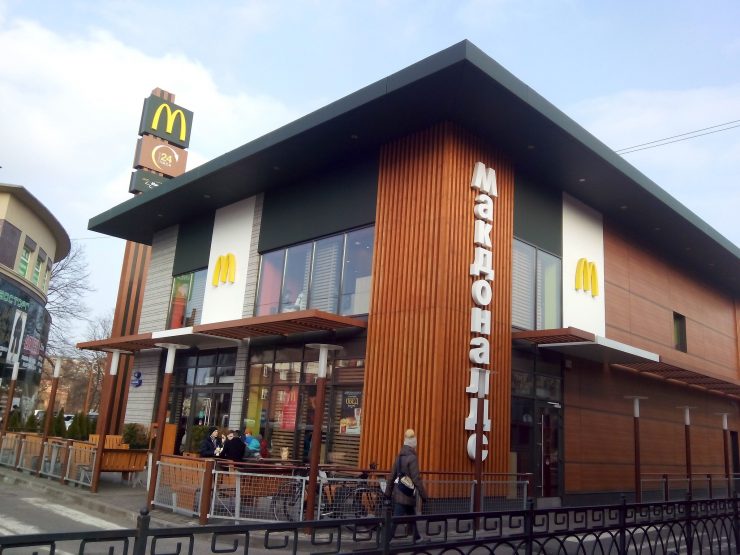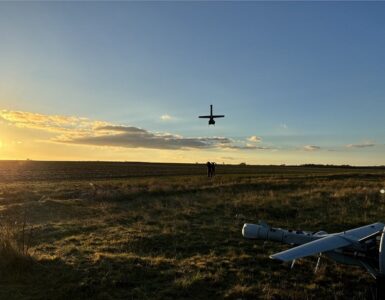ECONOMY UNDER SANCTIONS
German tech giant Siemens said on Thursday it is leaving Russia after more than a hundred years of doing business in the country, citing the war in Ukraine. Siemens was active in a range of industries in Russia, including sales of hi-tech equipment, electronics, production and maintenance of high-speed trains. [Source: CNBC]
McDonalds is planning to leave Russia after more than 30 years. The iconic fast food chain initially paused operations at the start of Russia’s invasion of Ukraine, and now it’s seeking a Russian buyer for its network of restaurants. [Source: NPR]
Turkish Airlines and some major Turkish online marketplaces started declining payments made via bank cards issued through the Russian payment system Mir. While there are no official comments from the companies, experts suggest the businesses may be afraid of secondary sanctions by Western countries. [Source: Izvestia]
RETAIL
Russian electronics retailer M.Video-Eldorado has established its own IT company, which will design biometrics and artificial intelligence-based products both for the retailer’s needs as well as for other clients. [Source: RBC]
Russian online retailers Ozon, Yandex.Market, and Wildberries will allow their vendors to sell goods under the so-called parallel import scheme. Earlier the Russian government officially enacted the scheme that suggests that nearly 50 items can be imported and sold in Russia without the permission of a copyright holder. [Source: Kommersant]
Sales of smartphones in Russia decreased by 30% in April compared to a year ago both in volume and value terms. While Samsung and Xiaomi remained first and second-ranked respectively in sales, Chinese Realme took the third position, which was previously occupied by Apple, as consumer demand is shifting toward cheaper devices. [Source: Kommersant]
UKRAINE
Ukrainian game developers in cooperation with artists launched a series of NFT-collection Avatars for Ukraine. Profits from sales of the NFTs will be handed over to the cryptofund Aid for Ukraine that provides medical aid for the Ukrainian military deployed in the war against Russia. [Source: INTV]
A Ukrainian entrepreneur Serge Faguet, who was arrested and jailed in Moscow in August 2021 for alleged drug trade, created a startup Curiosity during his time in prison where he was able to raise funding and recruit for his team. Now under home arrest and waiting for a trial in court, he continues to run his startup that aims to transform healthcare. [Source: East West Digital News, Medium]
SOCIAL MEDIA
Russian social network VK’s purchase of services Yandex.Zen and Yandex.News from tech giant Yandex will allow VK to cement its monopoly on platforms for writing bloggers, while Yandex will lose a significant part of its audience. The deal will further the companies’ strategies, with Yandex’s focus on technological services, while VK is more engaged in the creation and distribution of content. [Source: Interfax]
Russian free video sharing website Rutube was heavily damaged by hackers who reportedly demolished its critical components. After a few days of outage, the service was restored with limited functions. [Source: Reuters]
LABOR MARKET
Demand for professionals with knowledge of the Chinese language increased by 58% in Russia in April year-on-year. The trend reflects a shift to Asia in the Russian trade amid the sanctions imposed on business relations with Western countries. [Source: the St. Petersburg Diary]
Aliexpress Russia, a Russian branch of the Chinese retailer, reportedly fired 40% of its staff. The dismissed personnel was involved in export and imports operations that have become scrapped due to a drop in trade [Source: Shoppers.Media]
INTERNET
The Internet-based phone services market in Russia grew by 30.8% in 2021 to nearly $300 million compared to a year before. The number of companies using these services increased by 12% to 400,800, with the market set to rise by 12.2% a year with the number of clients reaching 618,000 through 2026. [Source: Spark]
The Russian digital advertising market increased by 24% in 2021 compared with 2020, to $5.2 billion. The growth largely linked to the market recovery after the pandemic was seen across all the segments. [Source: Spark]
Russian business tycoon Oleg Tinkov has sold its premium realty rent service La Datcha for what he said was “a market price”. The sale followed another sale by Tinkov: earlier he had sold its stake in the Tinkoff bank citing “pressure from the Kremlin.” [Source: RB]
STARTUPS
Ten startups have become residents of the Innopolis special economic zone based in the city of Kazan. A list of technologies includes a payment system for e-commerce, control of client services at salespoints, outstaffing for distant work, check of a company’s reputation by its financial data and remote monitoring of bees. [Source: Invest Foresight]
Russian cloud service Finansist raised nearly $2 million from investors. The management services provider targeted at owners of small and medium businesses will spend the investments on marketing and scaling up of the product. [Source: Spark]
SCIENCE
The Russian government is looking to subsidize development of biopolymer technologies as foreign companies are winding down their activities in the country. Russia has the advantages of cheaper labor and energy resources in addition to the availability of raw materials and high demand. [Source: Invest Foresight]
Scientists from the Moscow Physics Technology Institute and the Artificial Intelligence Institute created Russia’s first model of biologically active memory capable of completing complex actions on a basis of known simple operations, such as searching for items in labyrinths or establishing its geolocation. [Source: RB]






Add comment